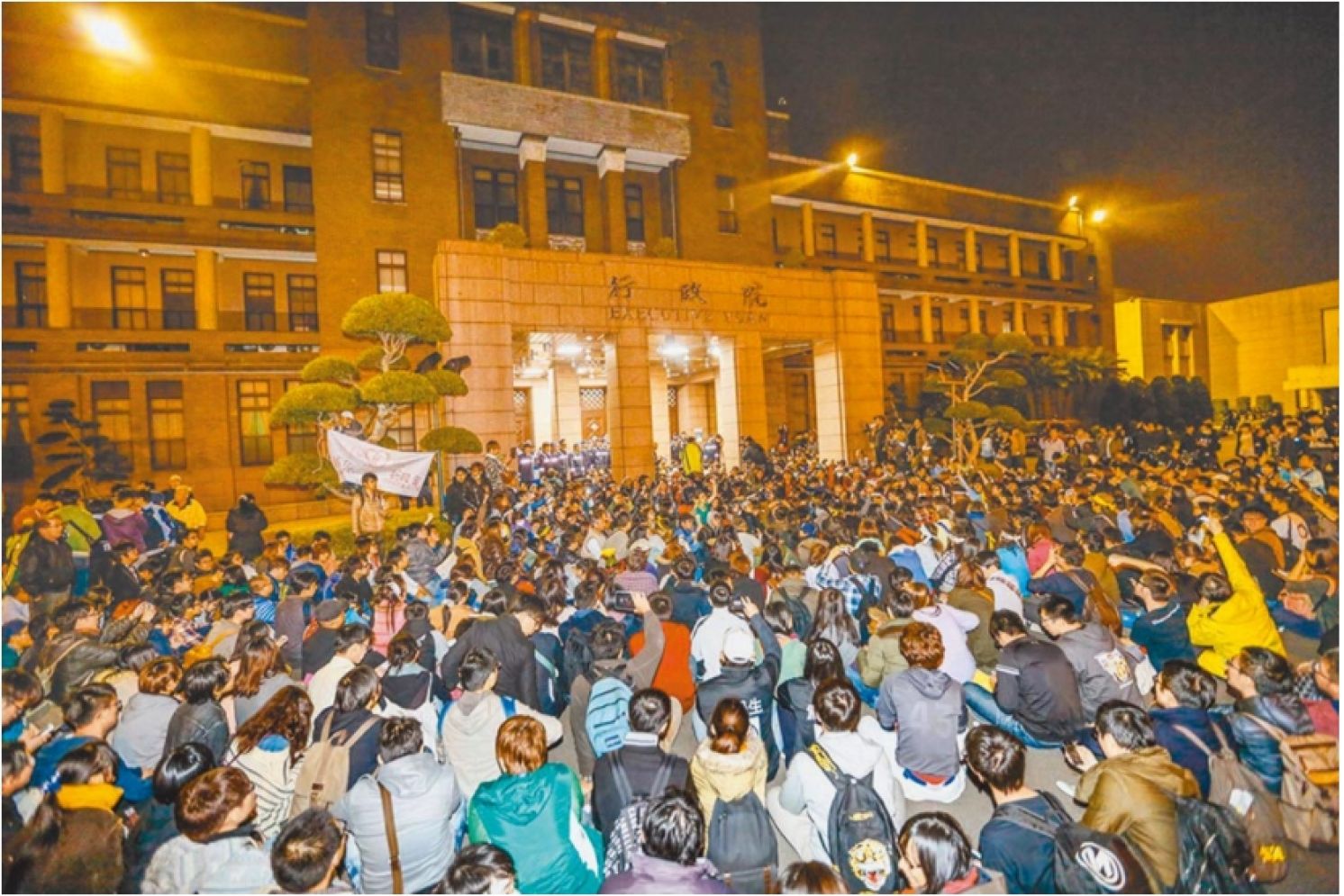
DPP Double Standards Trampled Democracy Twice
By Tseng Yi-ping
China Times, January 10, 2021
Recently, supporters of President Donald Trump broke into the United States Capitol, resulting in five deaths, of which four were private citizens and one was a police officer. This riot not only severely shaken the proud democracy of the United States but also hit the administration of President Tsai Ing-wen in Taiwan, which has often boasted common democratic values with the United States. After the riot broke out, Tsai administration officials from top to bottom kept silent. Lin Fei-fan, who co-led the 2014 Sunflower Student Movement and is now deputy secretary-general of the ruling Democratic Progressive Party (DPP), did not respond until yesterday. The true meaning of democracy should not be changed following one’s own political interests.
The Sunflower protests in 2014 once gained a lot of recognition and support. However, as leaders of the movement joined political institutions, becoming political celebrities and received its baptism, as of now they have exposed their political vulnerability, and some of them have even stepped off the altar.
Taiwan is already a democracy. Any disagreement should be handled through democratic mechanisms. Whether you like it or not, the final result is a representation of democracy. However, Sunflower protesters’ intrusion of the Legislative Yuan in the past hurt Taiwan’s democracy once; this time when the supporters of President Trump trespassed into the Capitol, the DPP administration’s silence is tantamount to trampling on Taiwan’s democracy for a second time.
It is not difficult to see that the DPP gained vested interests in the wake of the movement. After the Tsai administration came to power, it took the initiative to withdraw the lawsuits against suspects involved in the movement, while launching lawsuits against the then law enforcement. In order to prevent protests during the process of pension reform and labor law amendment, the Legislative Yuan and the Executive Yuan were tightly surrounded by barbed wires, much worse than when Kuomintang (KMT) was in power. Now the picture of American police officers killing a demonstrator who broke into the Capitol was presented to the public, it is even more ironic to the DPP’s governance.
After the 2004 presidential election, the opposition KMT and People First Party (PFP) jointly launched a “Plebiscite for the Truth” demonstration, and some violent behaviors happened. Wang Cho-chun, then commissioner of the Taipei City Police Department, resorted to compulsory eviction, including the use of water jet canons. Afterwards, he was acclaimed by the then DPP Premier Yu Shyi-kun.
However, in 2014, Wang, now promoted commissioner of the National Police Agency, Ministry of the Interior, again used water jet cannons to dissipate the demonstrators but, instead, incurred criticism from the DPP. Yu responded that the government must handle the 2004 incident in this way because the police were attacked by petrol bombs and iron bars. The problems is: Isn’t the motivation of Yu the same as then Premier Jiang Yi-huah during the Sunflower protests?
After a few days of silence, Lin Fei-fan was forced to respond to the violent actions of Trump supporters by stating: “When you muddle through, you should pay it back someday.” President Tsai has only used Twitter metaphors so far, citing the Statue of Liberty to mention: “In such a difficult time, we will stand firmly with our partners,”—not even a word of comment at all.
Some people think that the occupation of the Congress by Trump supporters was populist in nature. Was there no shadow of populist in the Sunflower protests that year? The government constantly raises the banner of democracy and civic disobedience but at the same time applies defensive democracy measures and national security laws to handle people with different political positions. In Taiwan, democracy may have become a weapon for obtaining political benefits.
From: